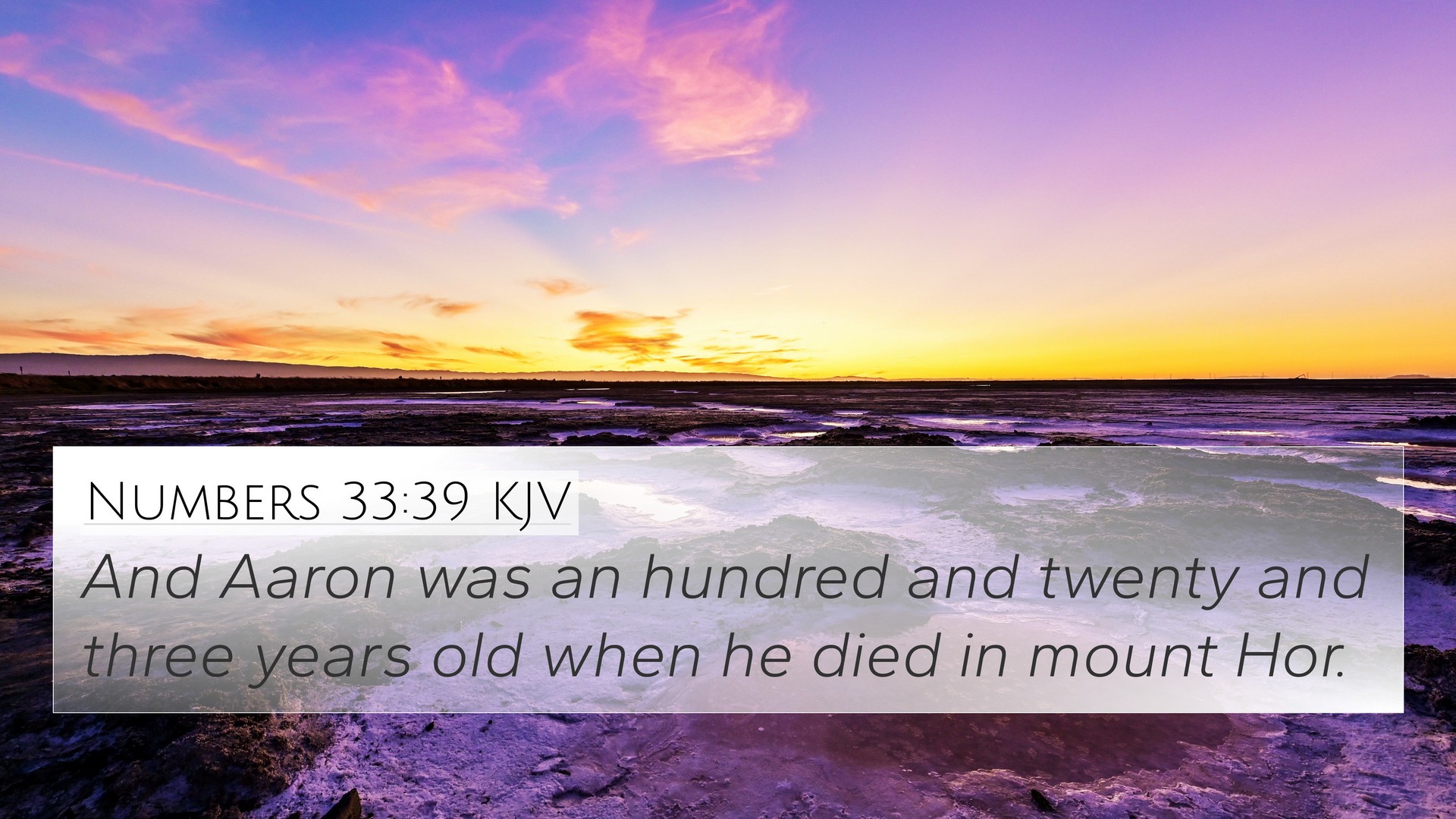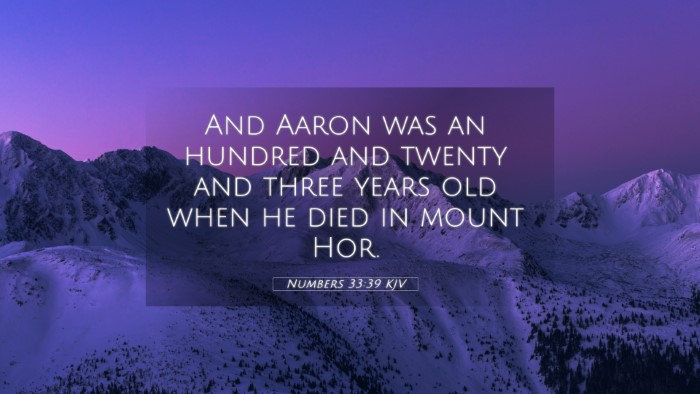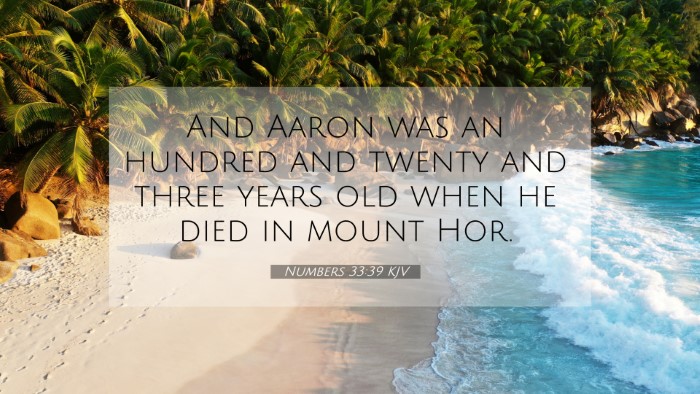Understanding Numbers 33:39
In Numbers 33:39, we find a brief yet poignant record that speaks to the account of the journey of the Israelites. The scripture states:
"And Aaron was an hundred and twenty and three years old when he died in mount Hor." (Numbers 33:39, KJV)
Overview
This verse marks a significant moment in the history of Israel, as it pertains to the death of Aaron, the elder brother of Moses and the first high priest. His death signifies the end of an era for the Israelites during their wilderness wanderings. Understanding this verse requires us to explore its theological and historical implications.
Commentary Insights
Insights from various public domain commentaries shed light on this verse:
-
Matthew Henry:
Henry emphasizes the significance of Aaron's role in the Israelite community. He reflects on the leadership transition and the spiritual implications of Aaron's death. Aaron, being a high priest, was instrumental in intercession for the people, and his passing marks a crucial turning point in their journey.
-
Albert Barnes:
Barnes highlights the age of Aaron at his death, noting that he lived to be 123 years old, which is significant in the biblical context as it reflects a life dedicated to God's service. Barnes also connects this event to the themes of mortality and divine appointment, indicating God's sovereignty in the lives of His leaders.
-
Adam Clarke:
Clarke notes that Mount Hor, the location of Aaron's death, is not just a geographical marker but also a symbolic one. It represents a place of elevation and divine encounter, suggesting that Aaron's death was a transition into a heavenly presence, elevating the spiritual narrative beyond the physical realm.
Thematic Connections
The death of Aaron provides a thematic link across the Scriptures. Here are several cross-references that relate to Numbers 33:39:
- Exodus 28:1: The call of Aaron to be a priest, illustrating his appointed role in God's plan.
- Leviticus 10:1-2: The consequences faced by Aaron's sons, which underscores the seriousness of priestly duties.
- Hebrews 5:4: Discusses the honor of being called to the priesthood, elevating the importance of Aaron’s role.
- Numbers 20:22-29: The account of Moses and Aaron's leadership, showing their impact on the Israelite journey.
- Deuteronomy 10:6: A reflection on Aaron’s family and the legacy of the priesthood.
- Matthew 17:1-3: The transfiguration of Jesus, where Moses and Elijah appear, drawing connections to Aaron's leadership.
- 2 Peter 1:14: The reminder of our mortality and the passing of faithful leaders.
- 1 Chronicles 6:3-5: Further genealogical context about Aaron’s descendants and their continued role in worship.
- John 3:16: The ultimate expression of God's love and sacrifice that leads to an eternal priesthood in Christ, linking back to Aaron's role.
- Romans 8:38-39: The assurance of God's love and eternal presence, echoing the hope behind Aaron's death.
The Importance of Cross-Referencing
To grasp the fullness of scripture, it is essential to engage in cross-referencing biblical texts. By exploring:
-
Tools for Bible Cross-Referencing:
- Bible concordance
- Bible cross-reference guide
- Bible reference resources
-
Cross-Referencing Bible Study Methods:
- Identifying connections between Old and New Testament
- Diving into detailed cross-references between Gospels
- Exploring cross-referenced themes in the Bible
Conclusion
Numbers 33:39, while brief, serves as a powerful reminder of God's sovereignty and the importance of faithful leadership in the community of believers. By studying this verse and its connections, we gain deeper insights into the narrative of the Israelites and the legacy of Aaron, which ultimately points towards the hope found throughout the entirety of Scripture.
For Further Study
Readers are encouraged to consider how they might use cross-referencing in their own study to discover insights and connections between various Bible verses. Whether preparing for a sermon or seeking personal understanding, engaging with the text through a comparative Bible verse analysis can unveil the rich tapestry of God's revelation through His Word.


